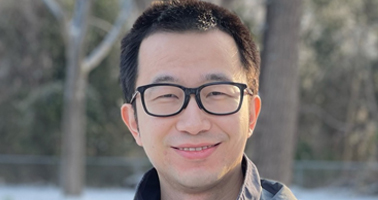Past Event: PhD Dissertation Defense
Wenbo Zhang, CSEM PhD student, Oden Institute, Willerson Center for Cardiovascular Modeling and Simulation. UT Austin
1 – 3:30PM
Friday Apr 22, 2022
POB 6.304 & Hybrid
The structural hierarchy in soft tissues (e.g., the heart valves and the myocardium) determines their anisotropic, heterogeneous, and nonlinear mechanical behavior. To incorporate the underlying detailed mechanism and predict the mechanical responses, the high-fidelity cardiac simulation requires a comprehensive modeling pipeline, involving an image-based geometry, structural material models, and finite element meshes co-registered with spatially varying fiber structures. Although the finite element simulations facilitate the understanding and predicting the functional states in health and diseases, they remain computationally expensive for time-sensitive applications such as patient outcome evaluation and surgical planning. We seek to develop a neural network-based modeling approach to reduce the prediction time at material, tissue, and organ levels. First, as a testbed for the applications of neural network models for soft tissues, we develop a neural network material model to efficiently reproduce the responses of high-fidelity structural material model for native and replacement tri-leaflet heart valves with a range of fiber structures, which is incorporated in the isogeometric analysis model with structural tensor representation of spatially varying fiber orientation function. Second, we developed a neural network surrogate model to approximate the solutions of the PDEs that describe the elastic responses of a passive myocardium tissue using potential-based training. Third, we scaled up the surrogate model for an organ-level model of the left ventricle. To account for the live pressure and the active contraction, a variational formulation was used for training the surrogate model. To be seamlessly integrated with existing finite element-based pipeline and neural network training, the differentiable finite elements on unstructured meshes were implemented, leveraging open-source libraries for neural networks and finite elements. The efficacy of the resulting surrogate modeling framework was demonstrated via the training and validation on pressure-volume loops of the left ventricular model. With this, we aim to ultimately facilitate the progress toward the use of patient-specific cardiac modeling in clinically relevant time frames.
Wenbo Zhang is a CSEM PhD student at the Oden Institute for Computational Engineering and Sciences where he works with Dr. Michael Sacks in the Willerson Center for Cardiovascular Modeling and Simulation. His current research focuses on neural network surrogate modeling with applications to cardiac simulations.
